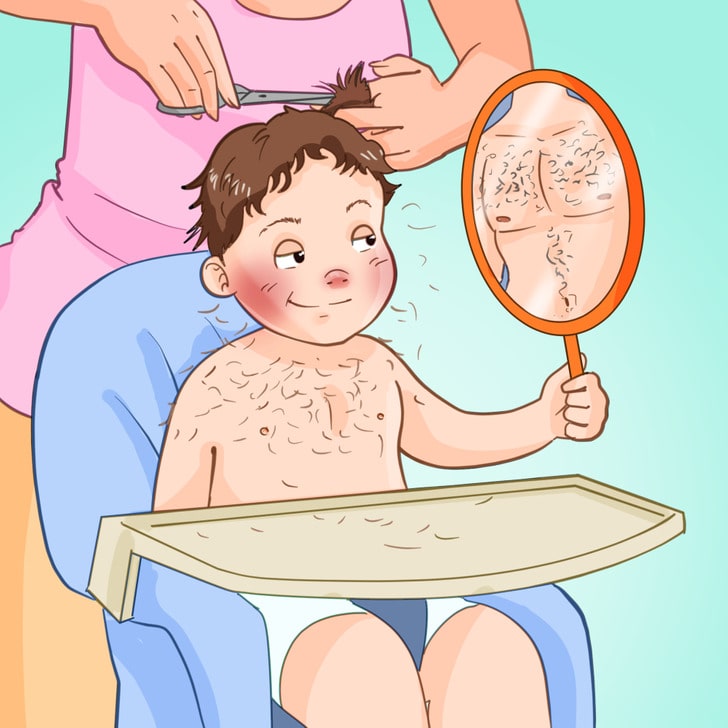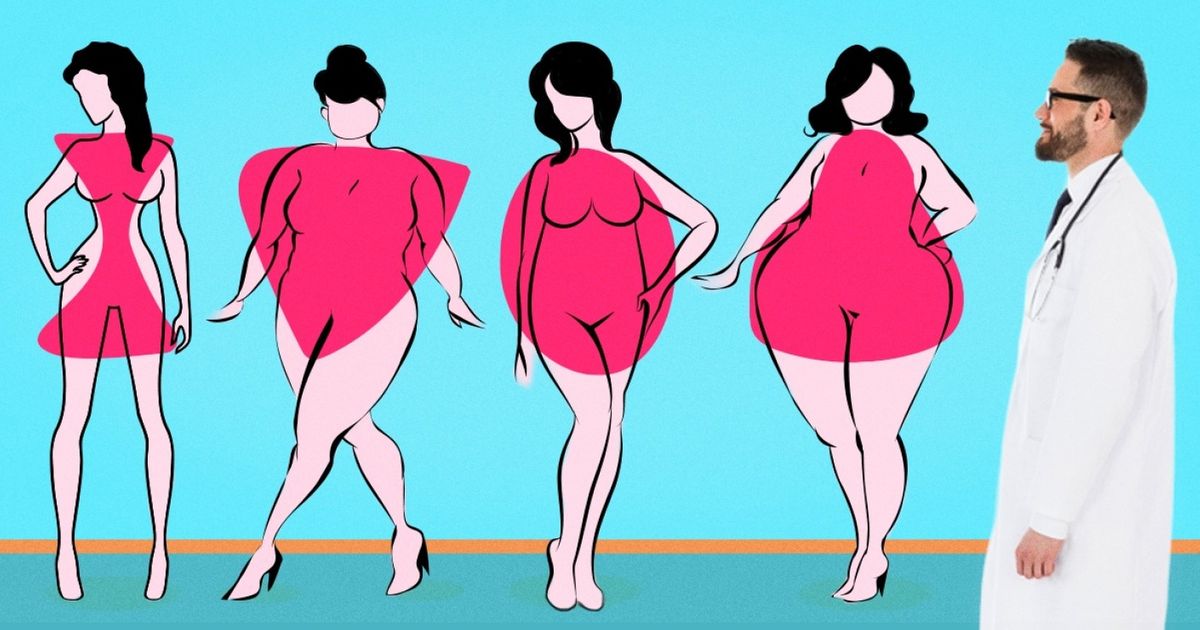Genetics has long captivated scientists and the general public alike. With the rise of DNA testing services and increased public interest in ancestry, many wonder about the secrets hidden within their genes. One intriguing topic is the idea that you might be genetically more like your dad than your mom. While it is true that each of us inherits 50% of our DNA from both parents, emerging research suggests that paternal genes might have a more pronounced influence on certain traits.
In this article, we will explore the science of genetic inheritance, delve into the concept of paternal gene expression, and discuss why keeping an eye on your dad’s health might be more important than you think.
Understanding the 50/50 Genetic Inheritance: Equal Contribution from Both Parents
It’s a well-known fact in genetics that every individual receives approximately half of their DNA from their mother and half from their father. This 50/50 split is the foundation of human genetic inheritance and explains why you share many characteristics with both parents. However, the simple equation of “50% from mom and 50% from dad” doesn’t tell the whole story.

The Genetic Blueprint:
Every cell in your body contains DNA, which serves as the blueprint for your physical traits and biological functions. The 23 pairs of chromosomes you inherit come with genes that determine everything from your eye color to your predisposition to certain diseases. Although the contribution is numerically equal, how these genes are expressed can vary dramatically between maternal and paternal contributions.
Balanced Contribution Yet Varied Expression:
Research from reputable sources like the National Institutes of Health (NIH) shows that while you do inherit equal amounts of genetic material from both parents, the regulation and expression of these genes can be influenced by various factors. These include epigenetics, gene imprinting, and other mechanisms that determine which genes are turned “on” or “off.”
Understanding this 50/50 split lays the groundwork for exploring why, in many cases, the genetic influence from your father might be more apparent in your phenotype (observable traits) or even in certain health conditions.

The Role of Paternal Gene Expression: Why Your Dad’s Genes May Seem Dominant

Recent studies have pointed to a phenomenon known as “paternal gene expression,” which suggests that some genes inherited from your father may be more actively expressed than those from your mother. This means that while both sets of genes are present, your dad’s genes might have a greater impact on certain traits.
Gene Expression and Regulation:
Gene expression is the process by which information from a gene is used to synthesize a functional gene product, usually a protein. This process is controlled by multiple regulatory mechanisms. According to research published in journals like Nature, some genes are subject to a process known as genomic imprinting. In this process, only one allele of a gene is expressed while the other is silenced, and in some cases, this bias favors the paternal allele.
Epigenetic Influences:
Epigenetics refers to changes in gene activity that do not involve alterations to the genetic code itself. Factors such as diet, lifestyle, and even environmental exposures can affect how genes are expressed. Studies have shown that some epigenetic markers inherited from the father may predispose individuals to certain traits or health conditions. For example, research from the Harvard T.H. Chan School of Public Health highlights that paternal lifestyle factors can influence epigenetic modifications, potentially leading to differences in gene expression between paternal and maternal genes.
Examples in Real Life:
Some observable traits and conditions, such as certain behavioral tendencies or predispositions to specific health issues, may appear to follow a more dominant paternal pattern. This isn’t to say that maternal genes play a lesser role overall, but rather that the way genes are expressed can sometimes make paternal contributions more visible.
Monitoring Paternal Health: How Your Dad’s Health Can Influence Your Genetic Risks

Given the emerging evidence that paternal genes might be more expressive in certain contexts, paying attention to your father’s health becomes particularly important. Family history is a crucial indicator of potential health risks, and understanding paternal health can offer valuable insights into your own genetic predispositions.
The Role of Genetic Testing:
Advances in genetic testing now allow you to understand more about your genetic makeup and potential health risks. Companies like 23andMe and AncestryDNA offer insights into your genetic predispositions, helping you identify if you’re at risk for conditions that have a strong paternal link. Additionally, consulting with a genetic counselor can help interpret these results and guide you on preventative measures tailored to your needs.
Inherited Health Risks:
Many health conditions have a strong genetic component. For example, research indicates that conditions such as cardiovascular disease, type 2 diabetes, and certain types of cancer can be influenced by the genes inherited from your parents. If your father has a history of a particular condition, it may increase your risk of developing it, due in part to the more pronounced expression of his genes.
Preventative Health Strategies:
Knowing your family’s health history empowers you to take proactive measures. The Centers for Disease Control and Prevention (CDC) recommends that individuals with a family history of certain diseases undergo regular screening and adopt a lifestyle that minimizes risk factors. By monitoring your dad’s health conditions, you can work with healthcare professionals to design personalized prevention strategies that may include dietary changes, exercise, and regular medical check-ups.
The Science Behind Paternal Dominance in Gene Expression
Understanding why paternal genes may sometimes appear more influential involves a deeper look into the mechanisms of gene expression and regulation. Two major concepts play a crucial role: genomic imprinting and epigenetics.
- Genomic Imprinting:
Genomic imprinting is an epigenetic process where certain genes are expressed in a parent-of-origin-specific manner. This means that for some genes, only the copy from the father (or mother) is active, while the other is silenced. This selective expression can lead to a scenario where the traits influenced by the active gene are more prominently passed down. Detailed discussions on genomic imprinting can be found in academic articles on PubMed. - Epigenetic Modifications:
Epigenetic modifications such as DNA methylation and histone modification are critical in regulating gene activity. These modifications can be influenced by a variety of factors, including environmental exposures and lifestyle choices. Research from ScienceDirect highlights that paternal lifestyle choices—such as diet, smoking, and stress levels—can lead to epigenetic changes that affect gene expression in offspring. This underscores the importance of a healthy lifestyle not only for personal well-being but also for the potential genetic impact on future generations.
How Do These Genetic Insights Affect Your Daily Life?
While the notion that you’re genetically more like your dad might seem like a fun fact, it has practical implications for your health and lifestyle. Here are a few ways these insights can make a difference:
- Personalized Health and Diet Plans:
Understanding your genetic predispositions can help you tailor your diet and exercise routines to better suit your needs. For instance, if you know that your father’s health history includes metabolic conditions, you might benefit from a diet rich in whole foods, lean proteins, and healthy fats. Websites like Healthline provide valuable advice on nutrition based on genetic predispositions. - Proactive Medical Check-Ups:
If your father has a history of certain conditions, it’s wise to undergo regular screenings and check-ups. This proactive approach can help detect early signs of potential health issues, allowing for timely interventions. The Mayo Clinic offers comprehensive guides on preventive health measures that can be particularly useful. - Family Health History Documentation:
Keeping a detailed record of your family’s health history can be a vital tool in managing your own health. This information can guide your decisions regarding lifestyle, diet, and even medical treatments. Sharing this history with your healthcare provider can lead to more personalized and effective care.
The Broader Implications of Genetic Research
The field of genetics is evolving rapidly, and our understanding of gene expression is continually deepening. These insights not only explain why you might be more like your dad in certain respects but also pave the way for personalized medicine and targeted therapies.
- Advancements in Personalized Medicine:
With the advent of personalized medicine, treatments can be tailored to your unique genetic makeup. This approach, which considers both maternal and paternal genetic contributions, offers the potential for more effective interventions for diseases such as cancer, diabetes, and heart disease. Institutions like the National Human Genome Research Institute (NHGRI) are at the forefront of this research. - Ethical Considerations and Future Directions:
As genetic research advances, ethical considerations become increasingly important. Understanding the implications of genetic testing and data privacy is crucial as we move toward a future where personalized medicine is the norm. Engaging with reputable sources and staying informed through platforms like Nature Genetics can help you navigate these complex issues.
Conclusion: Embracing Your Unique Genetic Heritage
While you inherit 50% of your genetic material from each parent, the expression of these genes can vary in ways that make you seem more like your dad in certain respects. The phenomenon of paternal gene expression, influenced by factors such as genomic imprinting and epigenetics, means that your father’s genes may sometimes play a more dominant role in shaping your traits and health outcomes.
Understanding these genetic nuances is not just an academic exercise—it has real-world implications. From personalizing your diet and exercise regimen to proactively managing your health, these insights empower you to make informed decisions that can improve your overall well-being.
By keeping a close eye on your family health history, particularly your father’s, and embracing the advancements in genetic research, you can navigate your health journey with a clearer understanding of your genetic blueprint. Remember, knowledge is power—especially when it comes to managing your health and embracing the unique genetic legacy that you carry.
For further reading on the topics discussed, consider exploring resources from the National Institutes of Health (NIH), Harvard Health Publishing, and the Mayo Clinic. These reputable sources offer a wealth of information on genetics, health risks, and personalized medicine that can help you stay informed and proactive about your well-being.
Preview photo credit LCLA/Broadimage/Broad Image/East News, Anthony Behar/Sipa USA/East News source Sipa USA









